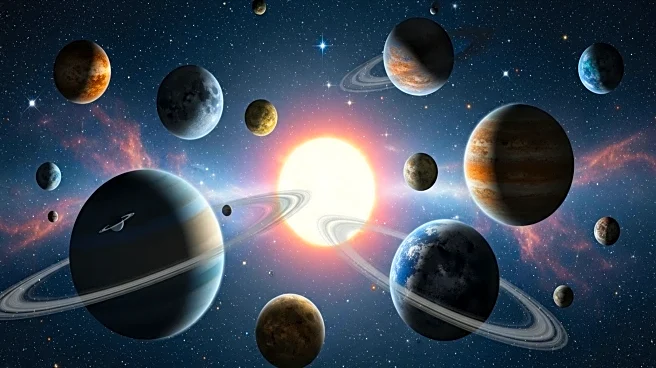What is the story about?
What's Happening?
NASA's Exoplanet Archive has confirmed the existence of 6,022 exoplanets as of October 2025. Despite the large number, none of these planets are Earth-like, according to Caltech astronomer Aurora Kesseli. Upcoming missions such as PLATO, the Roman Space Telescope, and Earth 2.0 aim to discover Earth-sized, potentially habitable worlds. These missions will employ various methods, including planetary transits and gravitational microlensing, to identify new candidates. The Gaia mission is expected to release a catalog of exoplanets discovered via astrometry, focusing on gas giants. The James Webb Space Telescope continues to analyze planetary atmospheres, although results have been inconclusive so far.
Why It's Important?
The discovery of exoplanets is crucial for understanding the potential for life beyond Earth. While none of the confirmed exoplanets are Earth-like, the upcoming missions could significantly expand our knowledge of potentially habitable worlds. This research could impact future space exploration and the search for extraterrestrial life. The ability to characterize planetary atmospheres will provide insights into the conditions necessary for life. The findings could also influence public policy and funding for space research, as the search for Earth-like planets remains a high scientific priority.
What's Next?
Future missions like PLATO, Roman, and Earth 2.0 are expected to add over 100,000 new candidates to the list of potential exoplanets. The Habitable Worlds Observatory, planned for the 2040s, aims to directly image potentially habitable worlds. This mission could bring humanity closer to discovering Earth 2.0. The Exoplanet Archive will face challenges in handling the data volume from these missions, requiring careful verification of each candidate. The continued analysis of planetary atmospheres by the James Webb Space Telescope and the upcoming ARIEL mission will further our understanding of exoplanetary environments.















